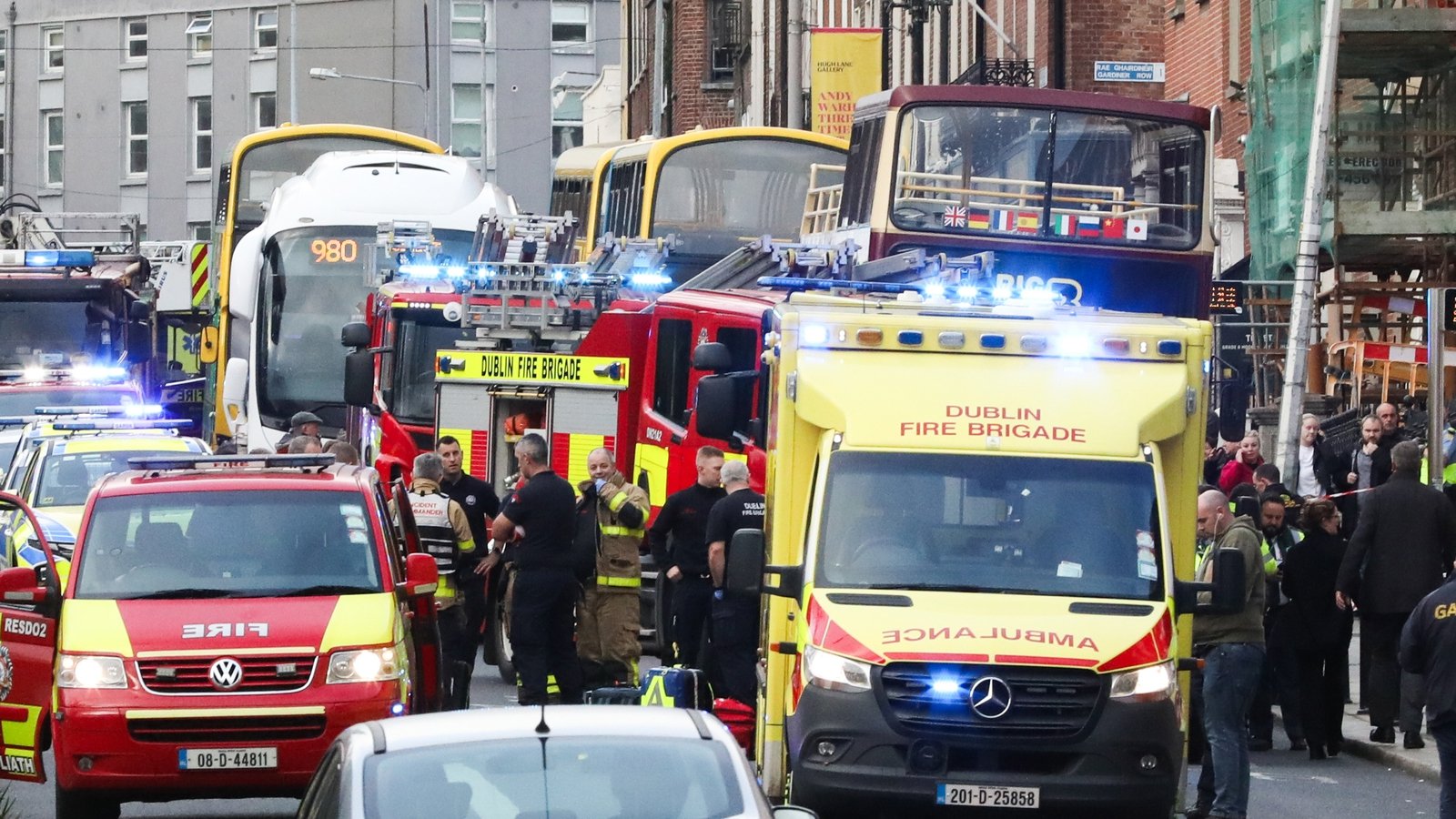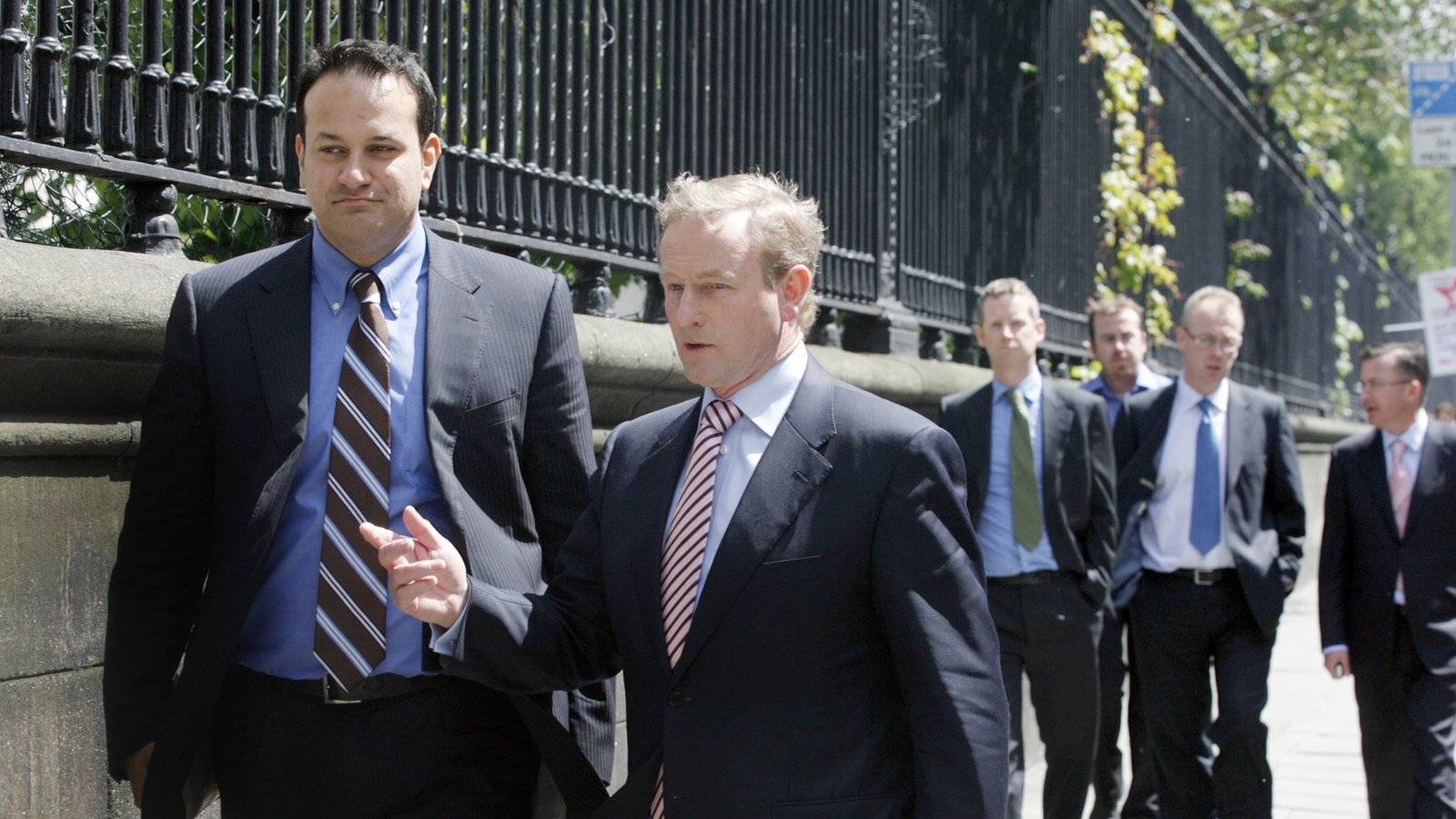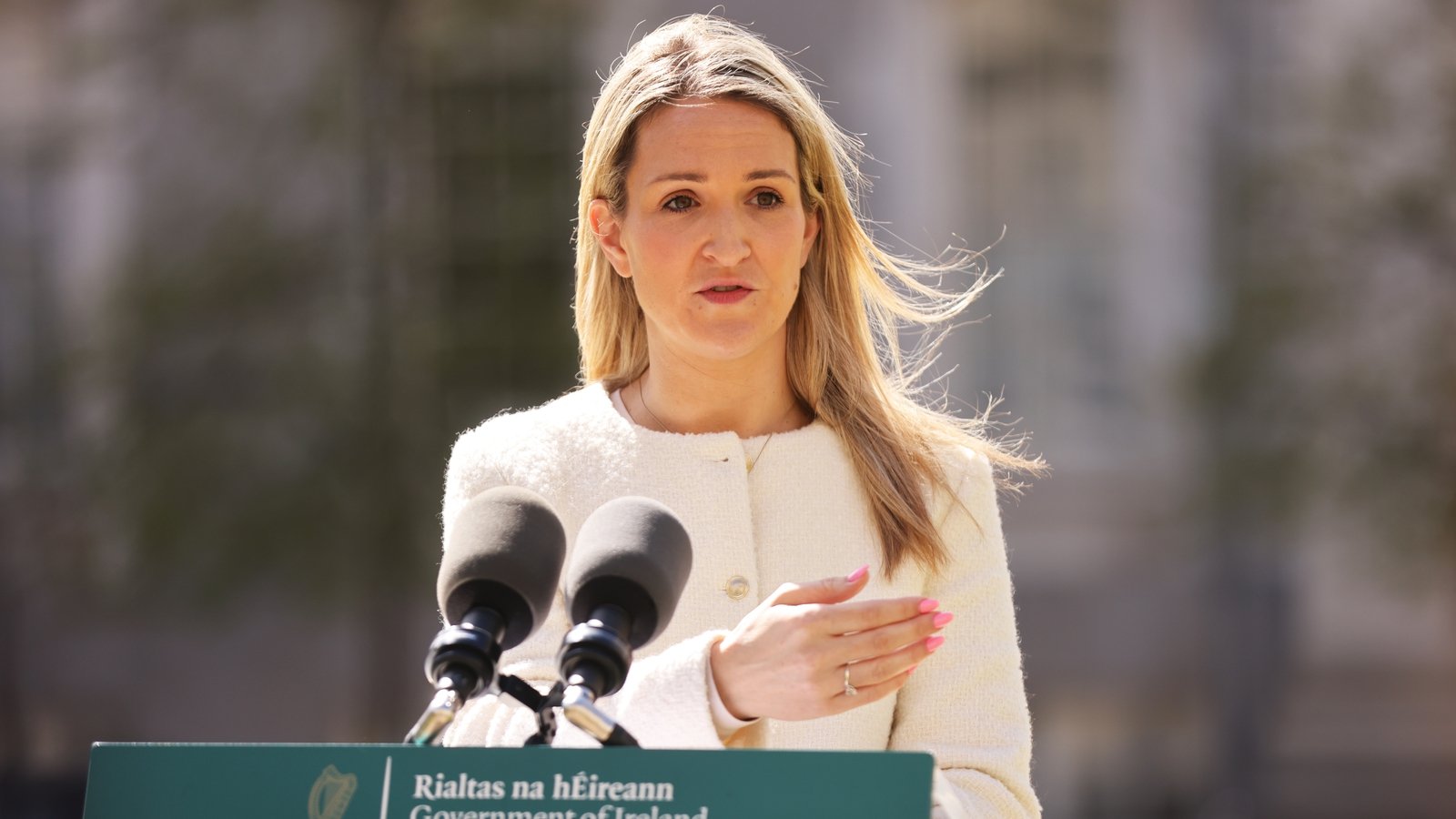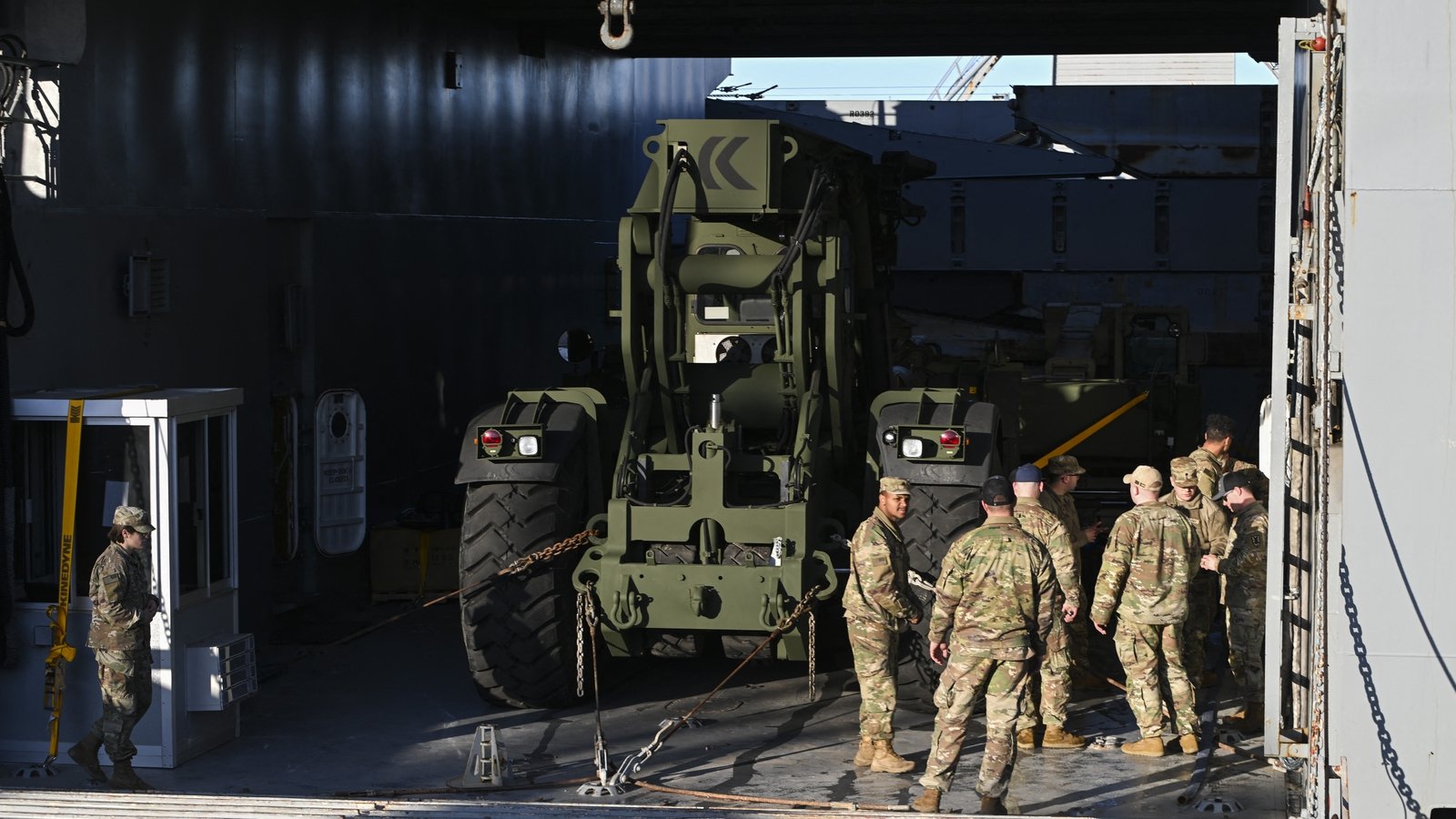Ireland should not ‘fear’ EU defence debate
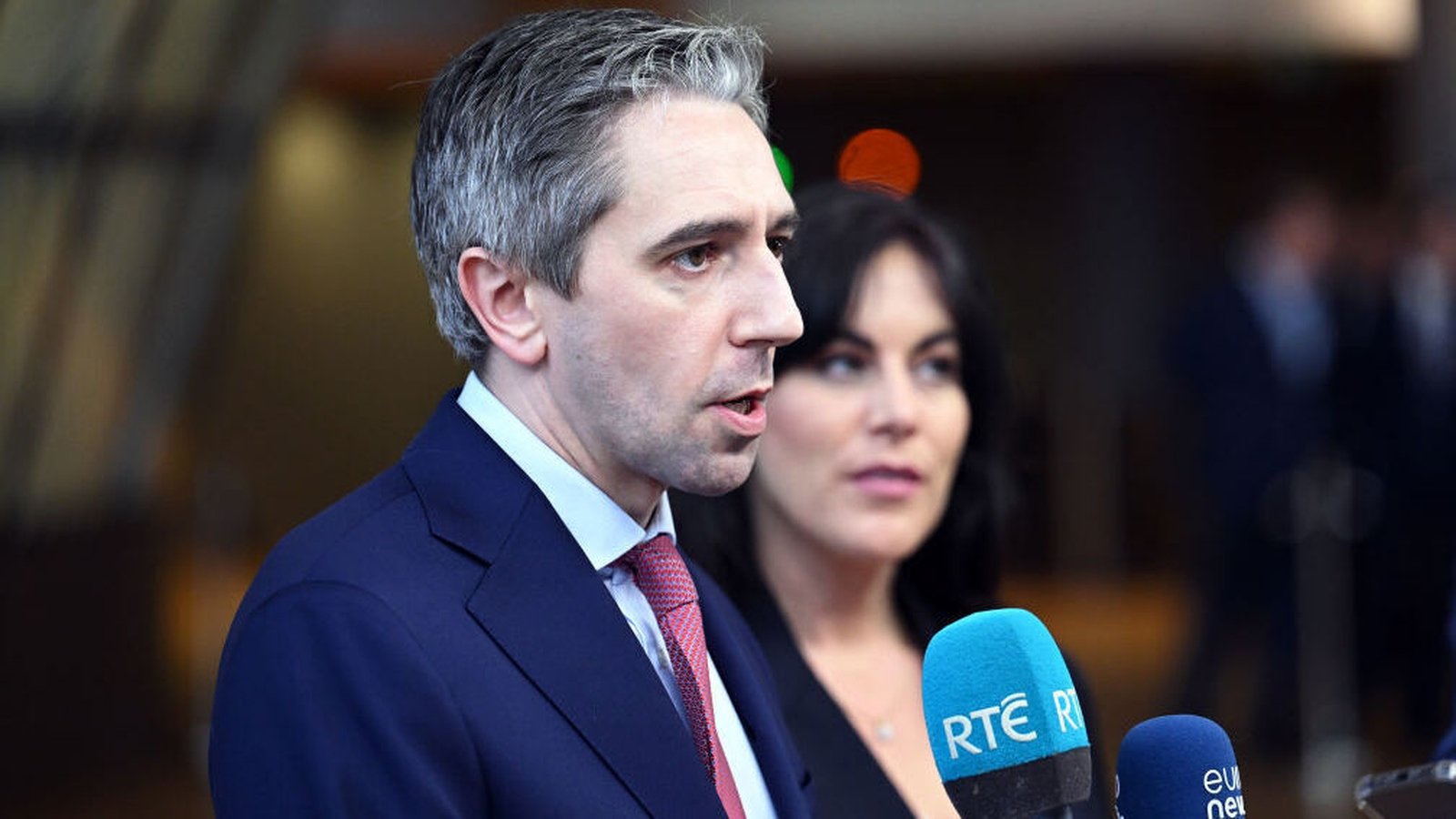
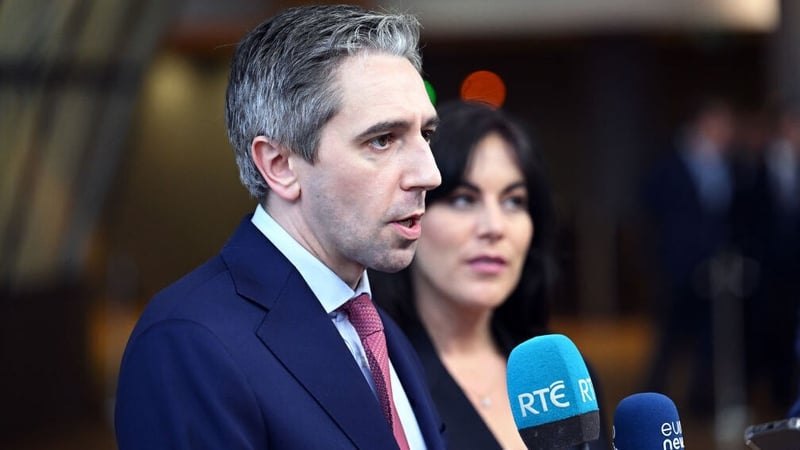
Taoiseach Simon Harris has said that Ireland should not “be fearful of” a debate about deepening collective defence at European level.
Speaking on his arrival at the second day of a European Union summit in Brussels, Mr Harris said: “I don’t think Ireland should shirk or shy away from participating in debates, while being very clear that we will remain militarily neutral.
“There’s nothing that I see here at a European level that I think Ireland should be fearful of, and I think Ireland should continue to be an honest participant.”
There has been a shift in thinking about the EU’s role in defence following the Russian invasion of Ukraine.
This has been driven partly by the bloc’s failure to meet its targets in supplying Ukraine with desperately needed artillery munitions, while replenishing Europe’s own stocks, long depleted since the end of the Cold War.
Outgoing European Commission President Ursula von der Leyen, who is seeking a second term, has supported the idea of a European commissioner for defence coordination, to facilitate a more cost effective procurement system at EU level.
The European Commission has said that in the year following the war in Ukraine, 78% of defence procurement by member states came from outside the bloc.
In March, the commission published its Defence Industrial Strategy (EDIS) which proposes increasing joint defence procurement within EU structures, strengthening its defence industrial base and addressing capacity problems during a crisis.
The proposal envisages a European Defence Industrial Programme (EDIP) to better manage procurement which would be funded by €1.5 billion from the EU budget.
Among the more controversial proposals are a set of extraordinary measures that could be triggered in a crisis where a qualified majority vote by member states could give the commission powers to force defence firms to share information about capacity and oblige civilian companies to produce defence equipment.
Mr Harris told reporters: “The Government has tried to play a very constructive role in having a very honest conversation with the people of Ireland about the reality of the world that we live in, and the defence threats that all countries, neutral or not, face.
“Right across the European Union those risks are apparent. We now see a war on the continent of Europe and beyond that, we see cyber attacks at an increasing level.”
Mr Harris, who yesterday cautioned against the creation of euro bonds to support defence spending, said a number of large EU member states had also raised concerns about the use of bonds regarding “how you appropriately leverage the limited resources available to the European Union to meet a whole variety of challenges – defence being one, but also the green transition, the digital transition being others”.
He said that he hoped Tánaiste and Minister for Foreign Affairs Micheál Martin would be in a position “within the lifetime of the Government” to bring forward legislative proposals on changing the triple lock, saying it was “absurd that we would live in a world where effectively Russia would have a veto [on] where we can send peacekeeping troops”.
“That is not in any way a move away from military neutrality, which Ireland intends to absolutely upkeep,” Mr Harris added.
EU leaders back new Iran sanctions after Israel attack
The European Union is to deepen sanctions on Iran following its drone and missile attack against Israel at the weekend.
In a statement issued after day one of their talks yesterday, EU leaders condemned the attack and said they were committed to Israel’s security, but called on all sides to show the utmost restraint.
Taoiseach Simon Harris, attending his first summit, said he supported the move, simultaneously calling for unhindered access for humanitarian aid throughout Gaza.
With leaders also expressing deep concerns about the impact of the weekend attack on Lebanon, where Iran supports a huge Hezbollah presence, Mr Harris paid tribute to Irish and other European peacekeepers serving with UNIFIL (United Nations Interim Force In Lebanon).
“We feel it’s very important to do everything to isolate Iran,” President of the European Council Charles Michel, adding the new sanctions against the country would target companies involved in the production of drones and missiles.
German Chancellor Olaf Scholz said it was important that Israel “does not respond with a massive attack of its own”.
Italy spoke separately ahead of G7 talks in favour of sanctions against arms suppliers linked to the attack against Israel, as well as those behind attacks on ships in the Red Sea.
EU foreign ministers are due to continue the sanctions work on Monday.
The European Union already has multiple programmes that target Iran for human rights abuses, the proliferation of weapons of mass destruction, and Tehran’s support for Russia’s war in Ukraine.
Germany, France and several EU states are looking at expanding a scheme that seeks to curb the supply of Iranian drones to Russia to include the provision of missiles and cover deliveries to Iranian proxies in the Middle East.
Belgium backed introducing sanctions against Iran’s Revolutionary Guard Corps but Mr Scholz said that required further legal checks.
The bloc’s top diplomat said that could only happen if a national authority in the EU found that the group had been involved in terrorist activity.
Analysts say Iran is unlikely to face more severe economic punishment because of worries about boosting oil prices and angering top buyer China.
With the Middle East capturing much of the EU’s attention, Ukraine’s President Volodymyr Zelensky appealed for more help in holding the line against Russia’s invasion.
“Here in Ukraine, in our part of Europe, unfortunately, we do not have the level of defence that we all saw in the Middle East a few days ago,” Mr Zelensky told the summit, after Israel and allies mostly shot down the incoming drones and missiles.
“It reflects our current key need – the need for air defence,” he said, according to an EU official, repeating his calls for speedier deliveries of the weapons and ammunition previously promised to Ukraine.
Additional reporting Reuters

